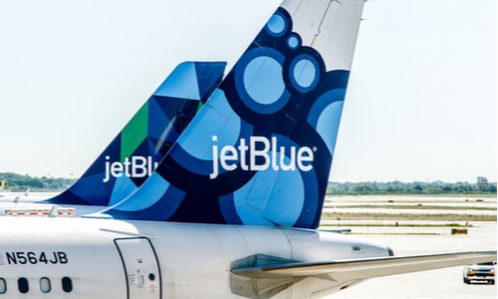JetBlue and Spirit Airlines Push Back on Law Firms’ Bid for Legal Fees in Abandoned Merger Case

JetBlue Airways and Spirit Airlines are urging a federal judge not to grant a substantial fee award to a group of law firms that sought to block their proposed $3.8 billion merger, arguing that the lawyers merely “piggy-backed” on the U.S. Justice Department’s efforts to challenge the deal. According to Reuters, the airlines abandoned their merger plans in March after a judge sided with the Justice Department’s argument that the merger would harm consumers. However, the law firms involved believe they deserve credit for their early opposition to the merger.
Joseph Alioto, an attorney from the Alioto Law Firm in San Francisco, has requested that U.S. District Judge William Young in Boston award up to $34.1 million to the plaintiffs’ legal team, which includes lawyers from eight other firms. This request would translate to a fee ranging between $3,000 and $5,000 per hour for the legal work done on the case, which was dismissed in June.
In a filing submitted last Friday in a Boston federal court, the airlines contended that the plaintiffs’ case was dismissed as moot, emphasizing that the lawyers did not try the case or win a summary judgment.
Related: Blocked JetBlue-Spirit Deal Illustrates New Antitrust Approach
The airlines, represented by attorneys from Cooley and Paul, Weiss, Rifkind, Wharton & Garrison, further claimed that Alioto’s case was already faltering before it was put on hold last year due to the government’s challenge. They pointed out that out of the 25 original plaintiffs, 22 were dismissed for lack of standing, and another had passed away. Even if the plaintiffs could claim some credit for the government’s success, the airlines argued, the requested compensation for 6,776 hours of legal work was excessive.
According to Reuters, Alioto strongly disagrees with the airlines’ assessment. He suggested that the airlines only chose to abandon the merger after initially appealing the Justice Department’s victory in court, citing the threat posed by his ongoing case as a significant factor in their decision. “If we didn’t exist, they would have continued the appeal,” Alioto remarked.
The Justice Department has not commented on the plaintiffs’ request for fees, and representatives for both JetBlue and Spirit declined to provide immediate responses when contacted by Reuters.
Alioto’s team first filed their lawsuit in November 2022, four months before the Justice Department initiated its case. In their fee request, the plaintiffs noted that the government had not taken action against previous airline mergers, leading them to believe that private antitrust litigation was necessary. Alioto also argued that the fee award provision in the Clayton Act was designed to encourage such private enforcement actions, accusing the airlines of trying to undermine this mechanism by opposing the fee request. “They’re trying to destroy the purpose of the statute and efficacy of the statute,” Alioto said.
This case is part of a broader legal debate over the appropriate compensation for attorneys involved in high-stakes litigation, particularly when the outcomes of such cases influence major corporate decisions.
Source: Reuters
Featured News
Big Tech Braces for Potential Changes Under a Second Trump Presidency
Nov 6, 2024 by
CPI
Trump’s Potential Shift in US Antitrust Policy Raises Questions for Big Tech and Mergers
Nov 6, 2024 by
CPI
EU Set to Fine Apple in First Major Enforcement of Digital Markets Act
Nov 5, 2024 by
CPI
Six Indicted in Federal Bid-Rigging Schemes Involving Government IT Contracts
Nov 5, 2024 by
CPI
Ireland Secures First €3 Billion Apple Tax Payment, Boosting Exchequer Funds
Nov 5, 2024 by
CPI
Antitrust Mix by CPI
Antitrust Chronicle® – Remedies Revisited
Oct 30, 2024 by
CPI
Fixing the Fix: Updating Policy on Merger Remedies
Oct 30, 2024 by
CPI
Methodology Matters: The 2017 FTC Remedies Study
Oct 30, 2024 by
CPI
U.S. v. AT&T: Five Lessons for Vertical Merger Enforcement
Oct 30, 2024 by
CPI
The Search for Antitrust Remedies in Tech Leads Beyond Antitrust
Oct 30, 2024 by
CPI